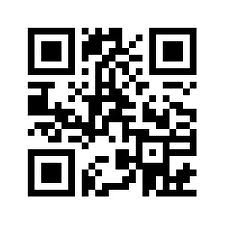I started my career as a systems librarian, so you would think I would be up on all the latest gadgets, but that hasn’t always been the case. Until I became an administrator, I didn’t really have a great need for constant mobile connectivity, so I lagged behind the times, remaining for the most part an outsider to the cellular revolution; but life moves on and things change, and I decided to jump in…with both feet. My new Droid X arrived last night
.
Even before it arrived, thanks to the multi-week waiting period for a Droid X, I had plenty of time to think about how it might change my professional practices. Like any good librarian, I started researching some of the possibilities.
My first question: How does it stack up to the competition? I found a nice mashup posted by the
Lone Wolf Librarian. He states, “
Going by the chart, there doesn’t appear to be much Droid is lacking – other than the 93,200 apps (100,000+ by recent estimates) that the iPhone’s app store offers. You also get Verizon’s network as opposed to AT&T.”
I moved on to looking at the ever-growing universe of Droid Apps to see which might be useful. I discovered many that will impact my personal life and information needs, but also found a few with some intriguing professional implications. One that immediately caught my eye was Barcode Scanner. This App uses your device’s camera to capture and scan barcodes. It then looks up prices, reviews – any associated information it can find in the Google universe. It can also be used to scan 2d or QR Codes – those malformed checkerboards which can contain URLs, contact info, calendar events, etc. I haven’t had much chance to play yet, but the new version even promises a bulk scanning mode. I also found many of the social networking tools featured in previous newsletters in App form; Facebook, MySpace, Twitter all have mobile versions
.
Next, I sought out Apps which met specific data or library needs. To start with, I limited myself to free options from the Droid Market. There are some nice mobile adaptations out there to give you data – quite literally – at your fingertips. FactBook, one of my longtime favorites for world and country data, has a nice clean interface and intuitive design. I found it just as easy to use as the desktop version. A blog post by David Rothman of davidrothman.net led me to PubMed Mobile. While it’s interface was a bit clumsier and less suited to the touchscreen environment of my Droid, it still allowed detailed searching of the free PubMed database.
Finally, I looked at uses which I’ve seen other mobile device owners using at my local public library. One of the neatest I found (with the help of an article by the
Librarian in Black) was the Overdrive Media Console for Android
™. Designed specifically for use with the OverDrive MP3 Audiobooks found in many libraries, it made their download and use easy even for a new user. Other similar tools available include the Kindle, Nook and Aldiko eBook readers. These all offer free public domain texts, as well as access to their eBookstores. I haven’t tested yet, but I believe the latter two could be used in conjunction with many library eBook systems.
As the Android OS grows, I imagine we will see more and more apps coming onto the market. I also imagine that the innumerable creative and dedicated library professionals out there will continue to drive us towards creative and functional uses for these new tools.
Note that I am not promoting the Droid over other smartphones--this is my experience with that one phone. Based on that experience and my research, I think smartphones do have a place in both personal and professional productivity, as well as in library service.
Dayle K. Zelenka
Traverse des Siuox Regional Library System/SMILE




No comments:
Post a Comment